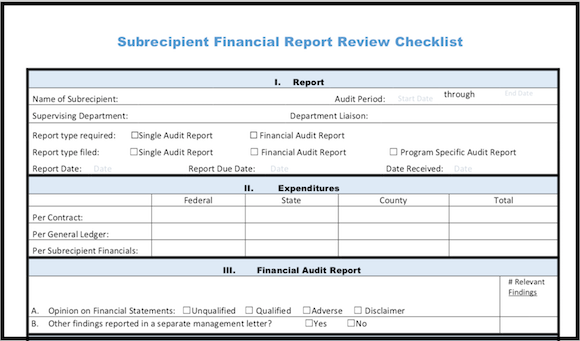|
When reviewing government internal controls, we frequently find weaknesses in controls over billing. Unfortunately, unscrupulous employees sometimes find these weaknesses and exploit them. Billing fraud scenarios we have encountered among California local governments include:
These two fraud scenarios demonstrate how important it is for Finance to be aware of every bill that goes out, and to assure that every bill gets collected in a timely manner. Your government should conduct an inventory of all “bills” that it issues. In practice, it may be challenging to identify all bills a government sends out because there are many different types prepared in lots of locations, in various formats, using various software, by different people. But you’d be wise to assure that the employees issuing the bills are adequately trained and are following appropriate policies and procedures. What counts as a “bill”? A “bill” is any communication, written or not, that requests money on behalf of the government. Examples of “bills” include:
Recommended internal government controls over billing, that you should implement, are:
Having a disciplined billing and collection procedure in place is the cornerstone, of good billing internal control. If your accounting system has a good billing module, use it. Be sure that every “bill” gets entered into the module at the time it is generated. Written policies and procedures should make it clear that any employee who sends a bill without using the module will be disciplined accordingly, up to termination of employment. If your accounting system does not have a good billing module, you will need to design procedures that assure that Finance knows every bill that is being issued anywhere in the government. It may be near impossible to prevent all fraud completely, but as long as Finance is aware of every request for payment and follow up to assure timely collection and recording in the accounting records, then most billing fraud can be avoided. If you have more questions about billing fraud prevention, feel free to reach out to Kevin directly: Kevin Harper, CPA kharper@kevinharpercpa.com (510) 593-503 If you'd like to get more free tips, as well as downloadable tools and templates for your agency, please join our mailing list here!
(We’ll send you a monthly curated selection of our blog posts. You can unsubscribe at any time.)
Comments
|
The Government Finance and Accounting BlogYour source for government finance insights, resources, and tools.
SEARCH BLOG:
Meet the AuthorKevin W. Harper is a certified public accountant in California. He has decades of audit and consulting experience, entirely in service to local governments. He is committed to helping government entities improve their internal operations and controls. List of free Tools & Resources
Click here to see our full list of resources (templates, checklists, Excel tools & more) – free for your agency to use. Blog Categories
All
Need a Consultation?Stay in Touch! |
Search Across Entire Site:
HELPFUL LINKS:
|
461 2nd Street, #302
San Francisco, CA 94107 (510) 593-5037 KHarper@kevinharpercpa.com |




 RSS Feed
RSS Feed